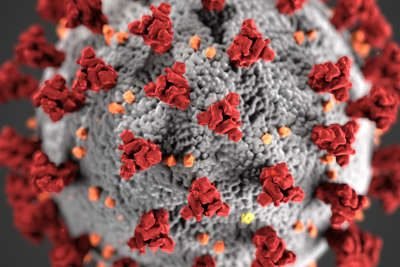Last year, the emergence of the highly transmissible omicron variant of the covid-19 virus caught many people by surprise and led to a surge in cases that overwhelmed hospitals and drove up fatalities. Now we’re learning that omicron is mutating to better evade the immune system.
Omicron-specific vaccines were authorized by the FDA in August and are recommended by U.S. health officials for anyone 5 or older. Yet only half of adults in the United States have heard much about these booster shots, according to a recent KFF poll, and only a third say they’ve gotten one or plan to get one as soon as possible. In 2020 and 2021, covid cases spiked in the U.S. between November and February.
Although we don’t know for sure that we’ll see another surge this winter, here’s what you should know about covid and the updated boosters to prepare.
1. Do I need a covid booster shot this fall?
If you’ve completed a primary vaccination series and are 50 or older, or if your immune system is compromised, get a covid booster shot as soon as possible. Forty percent of deaths are occurring among people 85 and older and almost 90% among people 65 and over. Although people of all ages are being hospitalized from covid, those hospitalizations are also skewing older.
Unvaccinated people, while in the minority in the U.S., are still at the highest risk of dying from covid. It’s not too late to get vaccinated ahead of this winter season. The United Kingdom, whose covid waves have presaged those in the United States by about a month, is beginning to see another increase in cases.
If you’ve already received three or more covid shots, you’re 12 to 49 years old, and you’re not immunocompromised, your risk of hospitalization and death from the disease is significantly reduced and additional boosters are not likely to add much protection.
However, getting a booster shot provides a “honeymoon” period for a couple of months after vaccination, during which you’re less likely to get infected and thus less likely to transmit the virus to others. If you’ll be seeing older, immunocompromised, or otherwise vulnerable family and friends over the winter holidays, you might want to get a booster two to four weeks in advance to better shield them against covid.
You may have other reasons for wanting to avoid infection, like not wanting to have to stay home from work because you or your child is sick with covid. Even if you aren’t hospitalized from covid, it can be costly to lose wages or arrange for backup child care.
One major caveat to these recommendations: You should wait four to six months after your last covid infection or vaccination before getting another shot. A dose administered too soon will be less effective because antibodies from the previous infection or vaccination will still be circulating in your blood and will prevent your immune cells from seeing and responding to vaccination.

